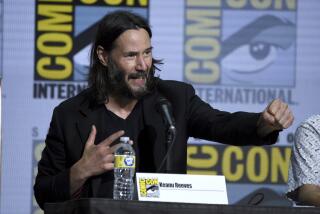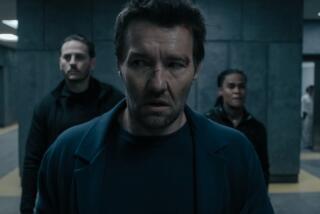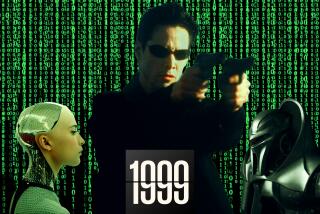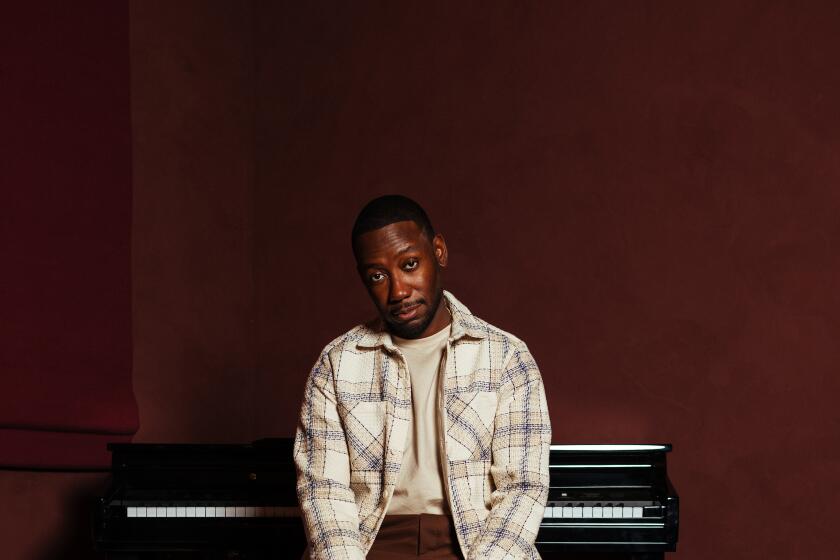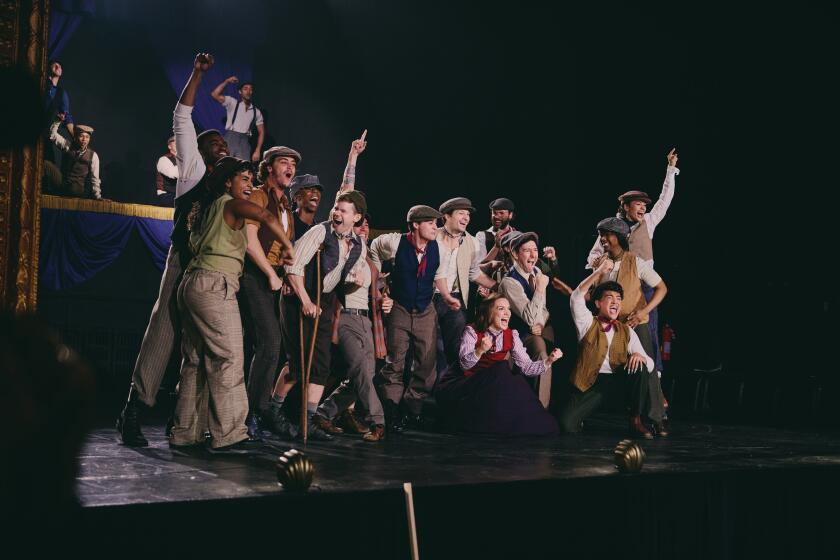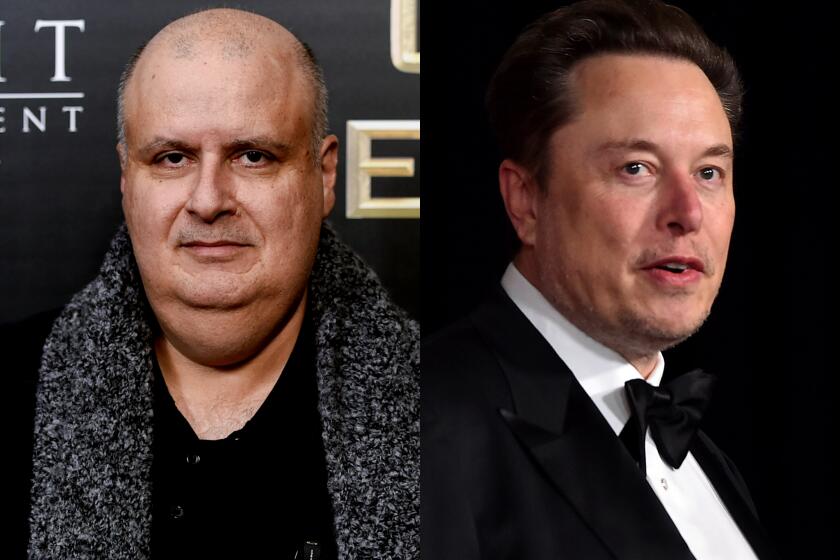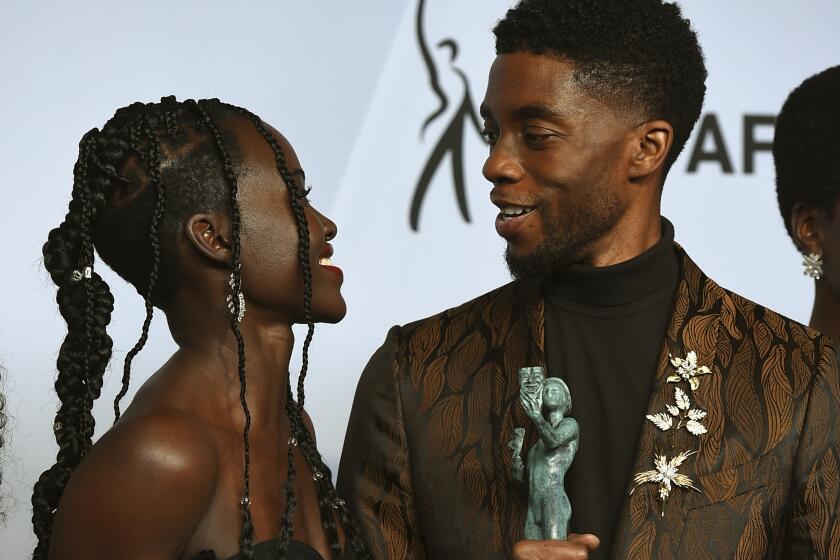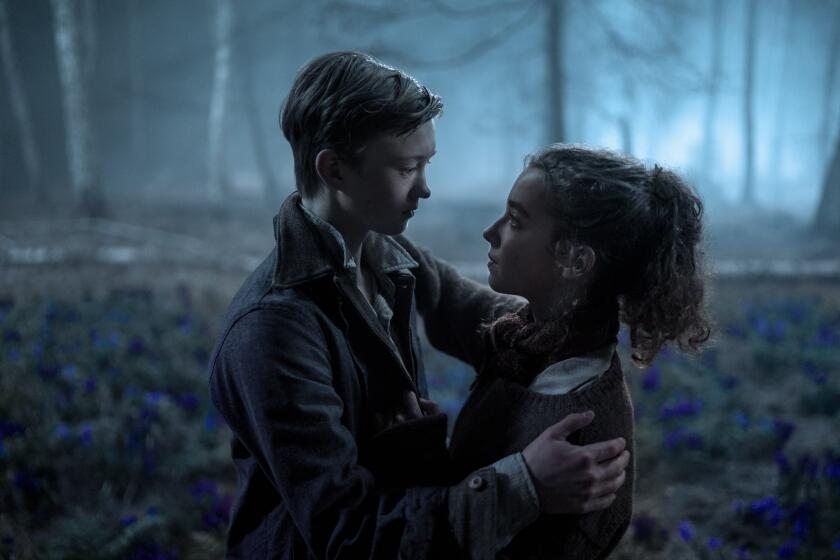Review: Surrounded by beauty, the world mysteriously unravels in ‘The Universal Theory’

As fun or scary as it is to ponder, we are likely not living inside the Matrix. But cinematically speaking, we are certainly living in a post-“The Matrix” world intoxicated by the possibility of a multiverse, as evidenced not just by noisy superhero fare and the Oscar-winning “Everything Everywhere All at Once” but also the more lush air of enchantment and doom pervading the German import “The Universal Theory.” Set against the ominous beauty of the Swiss Alps, the film is a post-WWII-set art thriller about a quantum physics wunderkind and a mysterious jazz pianist.
Call it blanc noir. Or hi-fi sci-fi. Or matinee fodder for the likes of Niels Bohr and Erwin Schrödinger. For sure, it’s a dreamy pastiche of the era’s moody, existential movies. Co-writer and director Timm Kröger effortlessly evokes the chilly unease of Antonioni, Welles and Tarkovsky while channeling plenty of Hitchcock vibes, mostly with an impressively full-blown orchestral score (by Diego Ramos Rodriguez) that could be a long-lost symphony of Bernard Herrmann’s. (Roland Stuprich’s black-and-white cinematography doesn’t hurt either.)
Kröger’s first scene is a cheesy ’70s talk show on which rattled-looking author Johannes (Jan Bülow) says his bestselling novel about parallel worlds isn’t fiction at all, a claim met with glib mockery from the host. We’re then transported to the monochrome widescreen of the early ’60s, when brainy, awkward PhD hopeful Johannes (looking much less splotchy) is working on his dissertation, traveling by train with his grumpy mentor Dr. Julius Strathen (Hanns Zischler) to a conference at a ski lodge.
Johannes’ overseer is no fan of “metaphysical rubbish,” which is where the young man’s energies are directed, particularly toward the universal wave function that suggests the existence of multiple realities. At the hotel, Johannes finds a like-minded thinker in Strathen’s old rival, the bombastic Blumberg (Gottfried Breitfuss). But he is also drawn to a coolly beautiful, enigmatic musician, Karin (Olivia Ross), who improbably knows his deepest childhood secrets and likes to say things to Johannes like “Leave me alone” seconds before cooing, “Be careful” and kissing him.
We’ve mapped out 27 of the best movie theaters in L.A., from the TCL Chinese and the New Beverly to the Alamo Drafthouse and which AMC reigns in Burbank.
Something is genuinely off about the goings-on at the conference, from strange deaths and elevators that suddenly aren’t elevators, to a rash of scabby infections afflicting guests and the discovery of a subterranean tunnel. Not to mention, of course, the distinct possibility that no one is who they say they are. Or were. Or will be? (And you thought you had too many distractions when you were in school.)
You don’t need a master’s in wave-particle duality to enjoy the cosmic playground of coincidence and fate that Kröger has in mind. That being said, the director, a cinematographer making his feature debut, isn’t anywhere near David Lynch’s kind of subconscious-melting brilliance. “The Universal Theory” is overlong and ultimately a work more of the head than the heart, no matter how much that wall-to-wall throwback score swells with intention. The performances, too, are more likenesses than full characterizations, which, admittedly, is wholly in keeping with the perplexities being dramatized.
Kröger is nevertheless a gifted stylist with the language and pacing of classical movies. He knows how to play with that familiarity of composition and narrative just enough to have us riding his plot all the way to the end, when he leaves snowy Switzerland for the rest of the story (which includes a “film” of Johannes’ book that makes this life-is-simulation-is-cinema cycle mischievously complete). All in all, it’s a timeline — or two — of incident, regret, memory and ghosts (and movie love) that wouldn’t feel out of place on a double bill with one of Lars von Trier’s early-career sandboxes such as 1991’s “Zentropa.” Nothing in “The Universal Theory” is going to blow your mind, but as it plays its fastidiously crafted notes of conspiracy and chaos, you’ll know the idiosyncrasies of the art house are alive and well.
'The Universal Theory'
In German, French and Swiss German, with subtitles
Not rated
Running time: 1 hour, 58 minutes
Playing: Opens Friday, Oct. 11, at Laemmle Royal, West Los Angeles
More to Read
Only good movies
Get the Indie Focus newsletter, Mark Olsen's weekly guide to the world of cinema.
You may occasionally receive promotional content from the Los Angeles Times.

